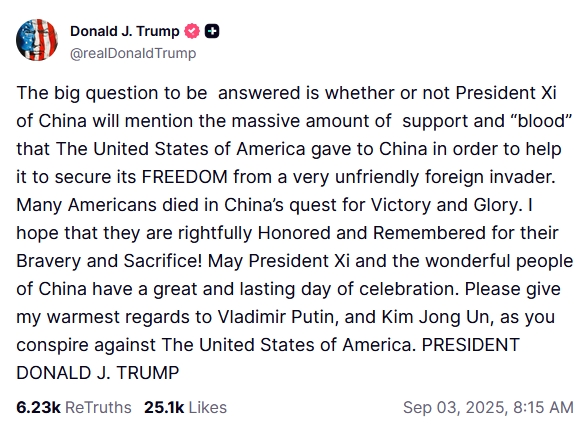Beijing staged its most ambitious military parade to date on Wednesday, signifying both a demonstration of hard power and an assertion of its evolving status as a leader in global affairs.
President Xi Jinping, accompanied by Russia’s Vladimir Putin and North Korea’s Kim Jong Un, presided over the elaborate ceremony in Tiananmen Square commemorating eight decades since the end of World War II in Asia and Japan’s surrender.
Xi, clearly aiming to consolidate Beijing’s role in a shifting world order, was at the center of the spectacle—greeting global leaders on a lavish red carpet before reviewing a formidable display of weaponry and military discipline. Advanced ballistic missiles, armored vehicles, and a formidable procession of soldiers moved in lockstep through the historic square, while fighter jets thundered overhead, underscoring China’s accelerating military modernization efforts.
The presence of Kim Jong Un, making an unexpected visit to Beijing, signals a deepening rapport between China and North Korea amid ongoing international friction. Indonesia’s president’s surprise appearance comes against a backdrop of political turbulence at home, highlighting Beijing’s sustained diplomatic reach in the region.
As China projected unity and strength, tensions with Washington continued to simmer. U.S. President Donald Trump, on his social media platform, accused Beijing of orchestrating moves against American interests—a reflection of the growing rivalry and suspicion between the two superpowers.
“Please give my warmest regards to Vladimir Putin, and Kim Jong Un, as you conspire against The United States of America,” Trump said, while recalling the U.S. efforts to end the war.






